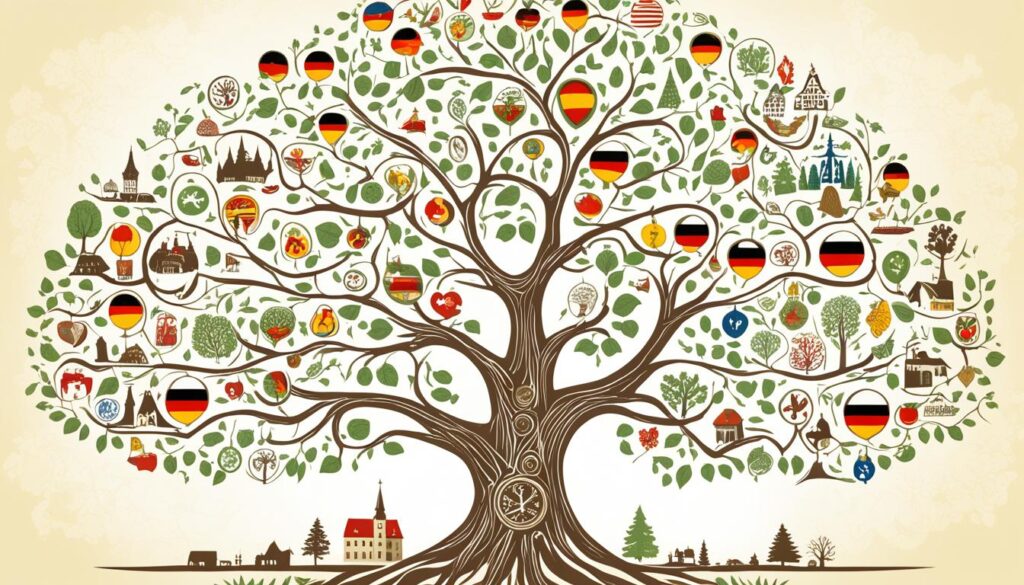German Ancestry Tracing: How to Research Your Family History
Researching your German roots is a journey full of rewards. This guide will show you how to trace your German Heritage in America. It includes tips on finding family records and using genealogy tools online. These steps will help you dig into your German ancestry and get in touch with your heritage. No matter if you’re just starting or want to dig deeper, this article is here to guide you in discovering your family’s unique story.

Key Takeaways
- The United States has conducted censuses every ten years since 1790, providing a wealth of ancestral data.1
- German civil and church records can date back centuries, though strict privacy laws limit access.1
- Navigating Germany’s historical regions and evolving borders is crucial for effective German ancestry research.1,2
- Online resources like MeyersGaz.org, Kartenmeister, and Compgen.de can aid in locating ancestors’ hometowns.2
- Professional genealogists with specialized German research expertise can provide invaluable guidance.
Uncovering Your German Roots
Looking into your German family history is much more than a pastime. It’s about finding yourself through understanding where you come from. This journey shows you your family’s past, their culture, and your personal story. You’ll learn about your ancestors’ lives, traditions, and what made your family who they are. Doing this can help you feel closer to your heritage and proud of your German and American mix.
The Importance of Tracing Your Ancestry
Start by talking to family members. Even distant relatives might have old family items that hold clues. These could be family Bibles, certificates, or letters. Such personal items often carry important details about your ancestors, like when and where they were born, got married, and passed away.
This information is key and will kick-start your search.
Starting Your Journey: Gathering Family Records
In today’s world, there are many digital tools for tracing your German roots. Websites, including RootsWeb and FamilySearch, are great starts. They give you access to a wealth of historical information. For example, you can find old records and ship logs that shed light on your ancestors’ lives.3 These sites let you do specific searches and offer maps to help you explore your family’s history.

Utilizing Online Genealogy Resources
With services like AncestryDNA, you can dig even deeper. This type of DNA test connects you to various German and European communities based on your genetics.3 Pairing this with an Ancestry membership opens the door to more info. The service recently added 266 communities specific to Germanic Europe. This makes it easier for those of German descent to find their roots.3
In a specific scenario, the DNA test was able to link someone to the Pomeranian and Mecklenburg regions.3 Using records from Eastern Prussian Provinces, Germany [Poland], individuals could find more. Details like date of birth, parents’ names, and spouse’s information can be uncovered.3 The availability of records, such as the 1819 Mecklenburg-Schwerin, Germany Census, is highlighted. Records from this particular census include people like Ferdinand Stiller.3
